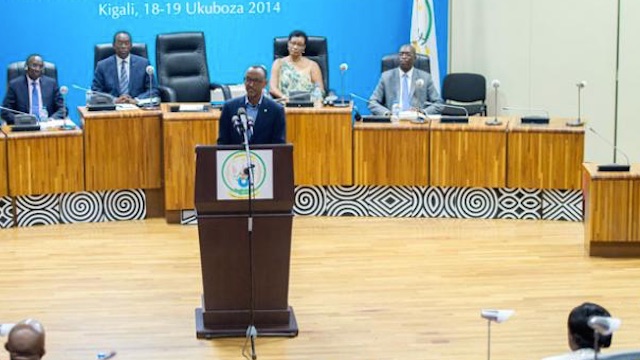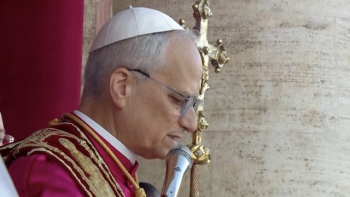During a press conference at the White House, before heading off for vacation to Hawaii, President Obama, making a clear reference to the hacking of Sony Pictures' computer systems by people believed to be sponsored by the North Korean government, said:
“We cannot have a society in which some dictator someplace can start imposing censorship here in the United States. Because if somebody is able to intimidate folks out of releasing a satirical movie, imagine what they start doing when they see a documentary that they don’t like or news reports that they don’t like.”
He then urged Sony Pictures leadership to stand up against bullies: “I wish they had spoken to me first. I would have told them, ‘Do not get into a pattern in which you’re intimidated by these kinds of criminal attacks.”
President Obama has also indicated that the US Government services "have been working up a range of options, with the right to respond, in a place and time and manner that we choose.”
As Kim Jong Un of North Korea Targets Sony's Satirical Movie "The Interview", Paul Kagame of Rwanda Cracks Down Hard on BBC for the Documentary "Rwanda's Untold Story".
President Obama, was cleary making a reference to Kim Jong Un of Korea, by saying that “some dictator someplace can start imposing censorship here in the United States.”
However, President Obama's reference to the encouragement of others dictators to do the same “when they see a documentary that they don’t like or news reports that they don’t like,” may have brought to the front the on-going arm wrestling between the british media, BBC and the Rwandan dictator General Paul Kagame over a BBC documentary "Rwanda's Untold Story (see here)".
In the documentary, BBC investigative journalists interviewed eye witnesses, Paul Kagame's former aides, and researchers and provided evidences of General Paul Kagame's unique responsibility and direct involvement in the shooting down of the plane, the assasination of the late Rwandan President Juvenal Habyarimana and, in the ensuing systematic massacres of millions of Rwandan civilians.
Since the broadcasting of the documentary, the Rwandan dictator General Paul Kagame and his government have led a campaign of censure against and cracking down on BBC and its journalists.
Today, in Kigali, Rwandan Foreign Affairs Minister Louise Mushikiwabo qualified the BBC documentary Rwanda’s Untold Story as “a very serious attack on our country, our leaders, and on who we are.”
General Kagame alluded to the fact that even if the massacres the BBC documentary has attributed to him were true, “we were fighting for our right to live, we were told to stop fighting; our response was that it is those who are killing people who should be told to stop. We shall never apologize for standing up for our right. There are no better people than us in our own country for our affairs.”

















